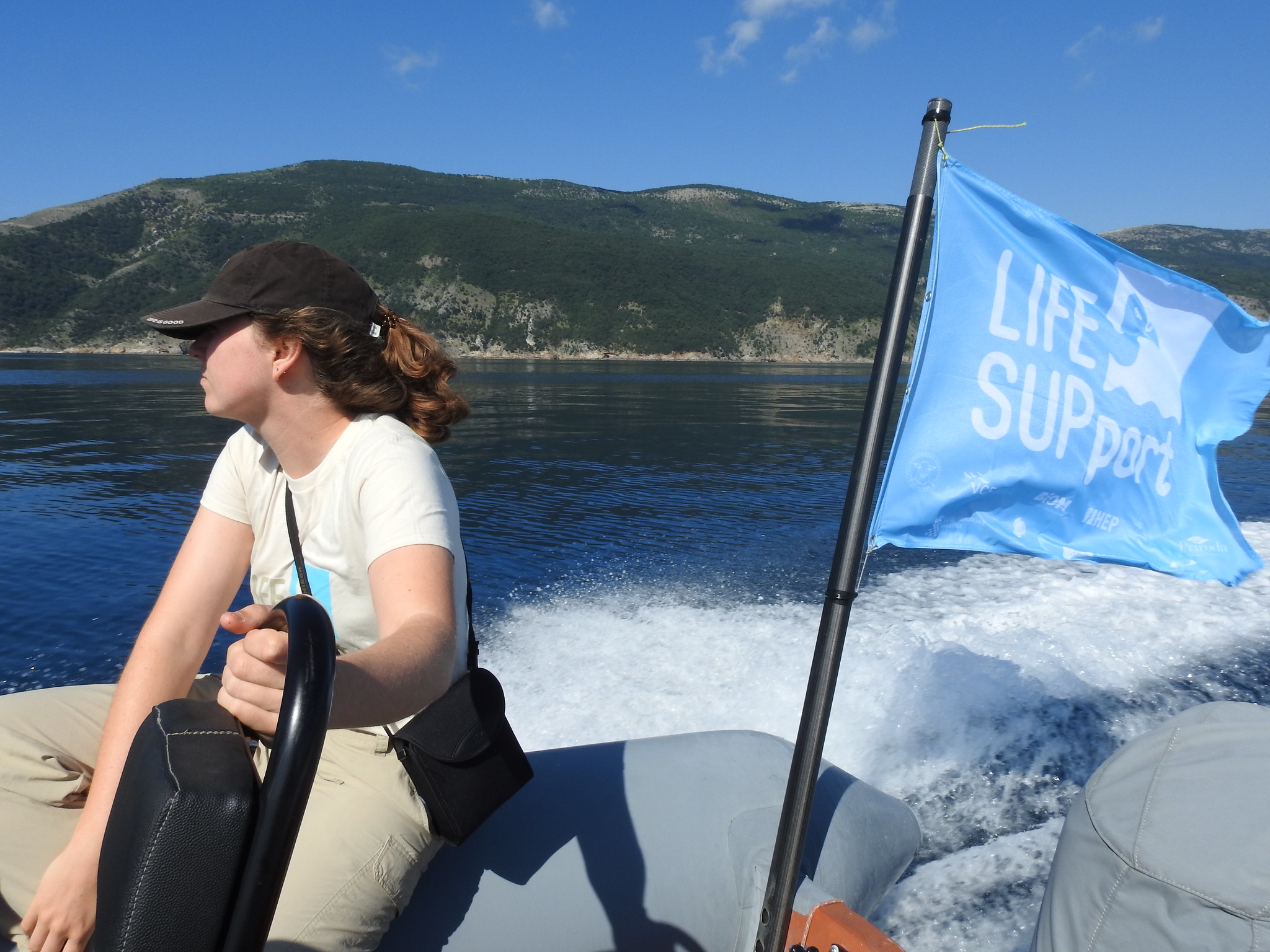The right to react to the improper application of EU legislation by member states is crucial for ensuring its effectiveness, but also a fundamental right of EU citizens

Yesterday and the day before yesterday, an informal
meeting of environment ministers was held in Sweden as part of the Swedish Presidency of the EU Council. The meeting discussed inter-sectoral challenges that are important for the green transition.
We would like to take this opportunity to express our concern with the Swedish Presidency and to support European civil society organizations* who at the end of March 2023 expressed serious concern about the Swedish Presidency proposal on the Nature Restoration Law. The organizations sent a letter to the Swedish government and to all environment ministers in EU member states.
In the letter, they expressed their concern and disagreement with the activities of the Swedish Presidency of the Council of the European Union, which they believe are aimed at deleting the provisions in the Nature Restoration Law concerning access to justice. These provisions give citizens and civil society organizations a legal foothold to question the substantive or procedural legality of national nature restoration plans. The right to react to the improper application of EU legislation by member states is key to ensuring its effectiveness, but it is also a fundamental right of EU citizens, recognized by the European Court of Justice.
In order to ensure the correct application of European legislation and the effective protection of biodiversity, representatives of civil society and citizens must have access to justice at the national level. For example, in 2017, a forest was illegally cut down in Poland in the area of Natura 2000 ecological network Białowieża Forest, which is the best preserved lowland forest in the EU. According to Polish legislation, the disputed forest management plan that allowed this actions, could not be reviewed in court at the national level. As a result, the illegal activity was stopped only months later, by a decision of the European Court of Justice, after the damage had already been done and 200,000 m3 of trees had already been cut down. If there had been a clear provision in Polish legislation enabling the right of access to justice at the national level, this irreversible damage to the precious forest ecosystem could have been avoided.
As stated in the Aarhus Convention, effective nature protection must enable the participation of civil society, i.e. its inclusion in decision-making processes and ensuring their compliance with nature protection legislation. Numerous organizations are concerned that in the discussions during the drafting of the Nature Restoration Law, attempts are being made to challenge fundamental rights, such as the right of access to justice, which is a democratic tool for nature protection and a democratic standard to which all EU member states should strive.
Accepting such a restrictive approach proposed by Sweden would mean ignoring the call of the European Commission to include the right of access to justice in the adoption of EU legislation (which was emphasized in the recent communication of the European Commission). Also, this decision would mean the inconsistency of the EU Council’s approach, given that provisions on access to justice are already included in numerous regulations.
In order to ensure the long-term and sustainable restoration of the biodiversity of the European Union, it is important that the right of access to justice has its clear place in the law. We therefore condemn Sweden’s attempts to remove the clear provisions on access to justice in the Nature Restoration Law.
* Association Workshop for All Beings (Poljska), Auroramålet, Švedska, BirdLife Europe, ClientEarth, EEB, Fern, Fridays For Future Sweden, Protect the forest Sweden, WWF European Policy Office
The letter from European civil society organizations can be read here:
https://www.fern.org/fileadmin/uploads/fern/Documents/2023/Swedish_Presidency_Access_to_Justice_draft_letter.pdf Yesterday and the day before yesterday, an informal meeting of environment ministers was held in Sweden as part of the Swedish Presidency of the EU Council. The meeting discussed inter-sectoral challenges that are important for the green transition.
We would like to take this opportunity to express our concern with the Swedish Presidency and to support European civil society organizations* who at the end of March 2023 expressed serious concern about the Swedish Presidency proposal on the Nature Restoration Law. The organizations sent a letter to the Swedish government and to all environment ministers in EU member states.
In the letter, they expressed their concern and disagreement with the activities of the Swedish Presidency of the Council of the European Union, which they believe are aimed at deleting the provisions in the Nature Restoration Law concerning access to justice. These provisions give citizens and civil society organizations a legal foothold to question the substantive or procedural legality of national nature restoration plans. The right to react to the improper application of EU legislation by member states is key to ensuring its effectiveness, but it is also a fundamental right of EU citizens, recognized by the European Court of Justice.
In order to ensure the correct application of European legislation and the effective protection of biodiversity, representatives of civil society and citizens must have access to justice at the national level. For example, in 2017, a forest was illegally cut down in Poland in the area of Natura 2000 ecological network Białowieża Forest, which is the best preserved lowland forest in the EU. According to Polish legislation, the disputed forest management plan that allowed this actions, could not be reviewed in court at the national level. As a result, the illegal activity was stopped only months later, by a decision of the European Court of Justice, after the damage had already been done and 200,000 m3 of trees had already been cut down. If there had been a clear provision in Polish legislation enabling the right of access to justice at the national level, this irreversible damage to the precious forest ecosystem could have been avoided.
As stated in the Aarhus Convention, effective nature protection must enable the participation of civil society, i.e. its inclusion in decision-making processes and ensuring their compliance with nature protection legislation. Numerous organizations are concerned that in the discussions during the drafting of the Nature Restoration Law, attempts are being made to challenge fundamental rights, such as the right of access to justice, which is a democratic tool for nature protection and a democratic standard to which all EU member states should strive.
Accepting such a restrictive approach proposed by Sweden would mean ignoring the call of the European Commission to include the right of access to justice in the adoption of EU legislation (which was emphasized in the recent communication of the European Commission). Also, this decision would mean the inconsistency of the EU Council’s approach, given that provisions on access to justice are already included in numerous regulations.
In order to ensure the long-term and sustainable restoration of the biodiversity of the European Union, it is important that the right of access to justice has its clear place in the law. We therefore condemn Sweden’s attempts to remove the clear provisions on access to justice in the Nature Restoration Law.
* Association Workshop for All Beings (Poljska), Auroramålet, Švedska, BirdLife Europe, ClientEarth, EEB, Fern, Fridays For Future Sweden, Protect the forest Sweden, WWF European Policy Office
The letter from European civil society organizations can be read here: https://www.fern.org/fileadmin/uploads/fern/Documents/2023/Swedish_Presidency_Access_to_Justice_draft_letter.pdf
Yesterday and the day before yesterday, an informal meeting of environment ministers was held in Sweden as part of the Swedish Presidency of the EU Council. The meeting discussed inter-sectoral challenges that are important for the green transition.
We would like to take this opportunity to express our concern with the Swedish Presidency and to support European civil society organizations* who at the end of March 2023 expressed serious concern about the Swedish Presidency proposal on the Nature Restoration Law. The organizations sent a letter to the Swedish government and to all environment ministers in EU member states.
In the letter, they expressed their concern and disagreement with the activities of the Swedish Presidency of the Council of the European Union, which they believe are aimed at deleting the provisions in the Nature Restoration Law concerning access to justice. These provisions give citizens and civil society organizations a legal foothold to question the substantive or procedural legality of national nature restoration plans. The right to react to the improper application of EU legislation by member states is key to ensuring its effectiveness, but it is also a fundamental right of EU citizens, recognized by the European Court of Justice.
In order to ensure the correct application of European legislation and the effective protection of biodiversity, representatives of civil society and citizens must have access to justice at the national level. For example, in 2017, a forest was illegally cut down in Poland in the area of Natura 2000 ecological network Białowieża Forest, which is the best preserved lowland forest in the EU. According to Polish legislation, the disputed forest management plan that allowed this actions, could not be reviewed in court at the national level. As a result, the illegal activity was stopped only months later, by a decision of the European Court of Justice, after the damage had already been done and 200,000 m3 of trees had already been cut down. If there had been a clear provision in Polish legislation enabling the right of access to justice at the national level, this irreversible damage to the precious forest ecosystem could have been avoided.
As stated in the Aarhus Convention, effective nature protection must enable the participation of civil society, i.e. its inclusion in decision-making processes and ensuring their compliance with nature protection legislation. Numerous organizations are concerned that in the discussions during the drafting of the Nature Restoration Law, attempts are being made to challenge fundamental rights, such as the right of access to justice, which is a democratic tool for nature protection and a democratic standard to which all EU member states should strive.
Accepting such a restrictive approach proposed by Sweden would mean ignoring the call of the European Commission to include the right of access to justice in the adoption of EU legislation (which was emphasized in the recent communication of the European Commission). Also, this decision would mean the inconsistency of the EU Council’s approach, given that provisions on access to justice are already included in numerous regulations.
In order to ensure the long-term and sustainable restoration of the biodiversity of the European Union, it is important that the right of access to justice has its clear place in the law. We therefore condemn Sweden’s attempts to remove the clear provisions on access to justice in the Nature Restoration Law.
* Association Workshop for All Beings (Poljska), Auroramålet, Švedska, BirdLife Europe, ClientEarth, EEB, Fern, Fridays For Future Sweden, Protect the forest Sweden, WWF European Policy Office
The letter from European civil society organizations can be read here: https://www.fern.org/fileadmin/uploads/fern/Documents/2023/Swedish_Presidency_Access_to_Justice_draft_letter.pdf





